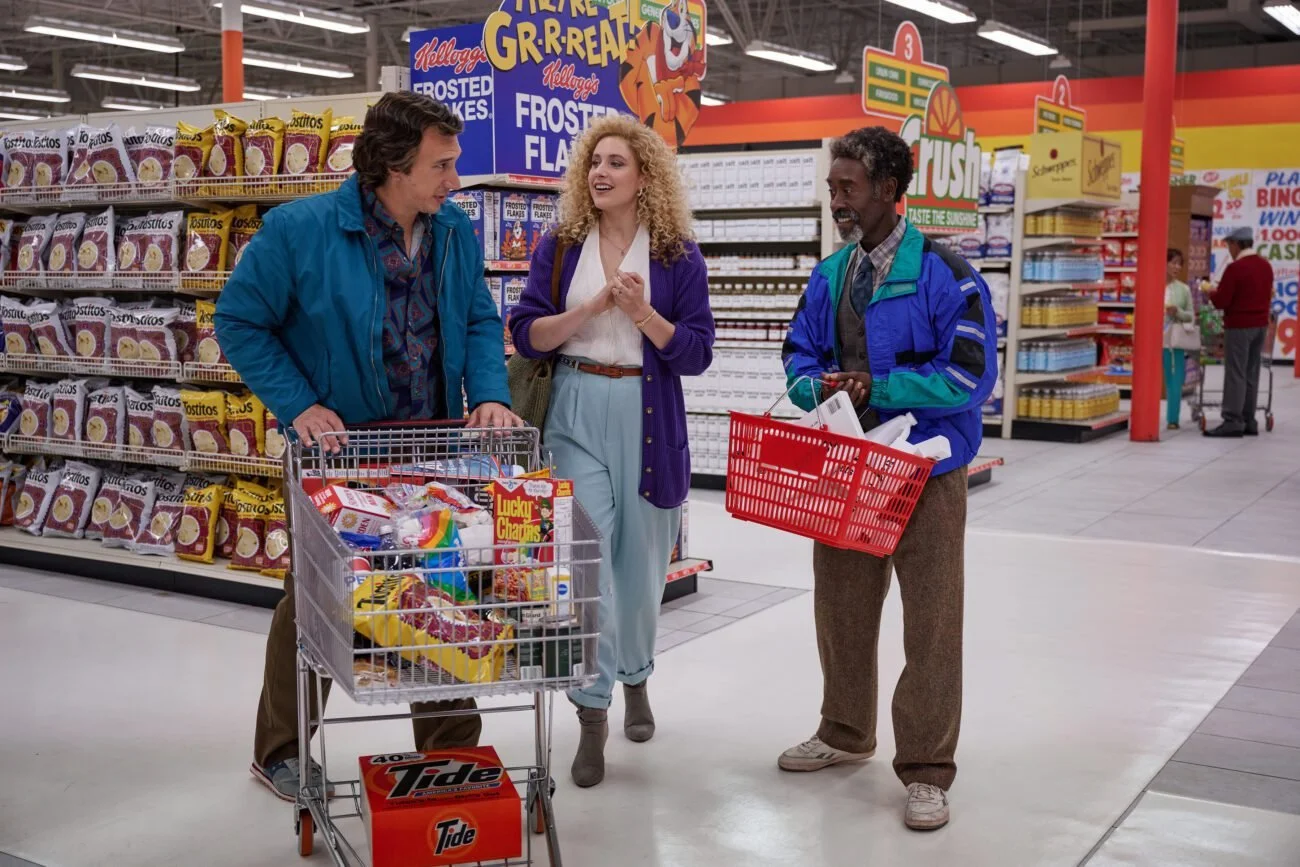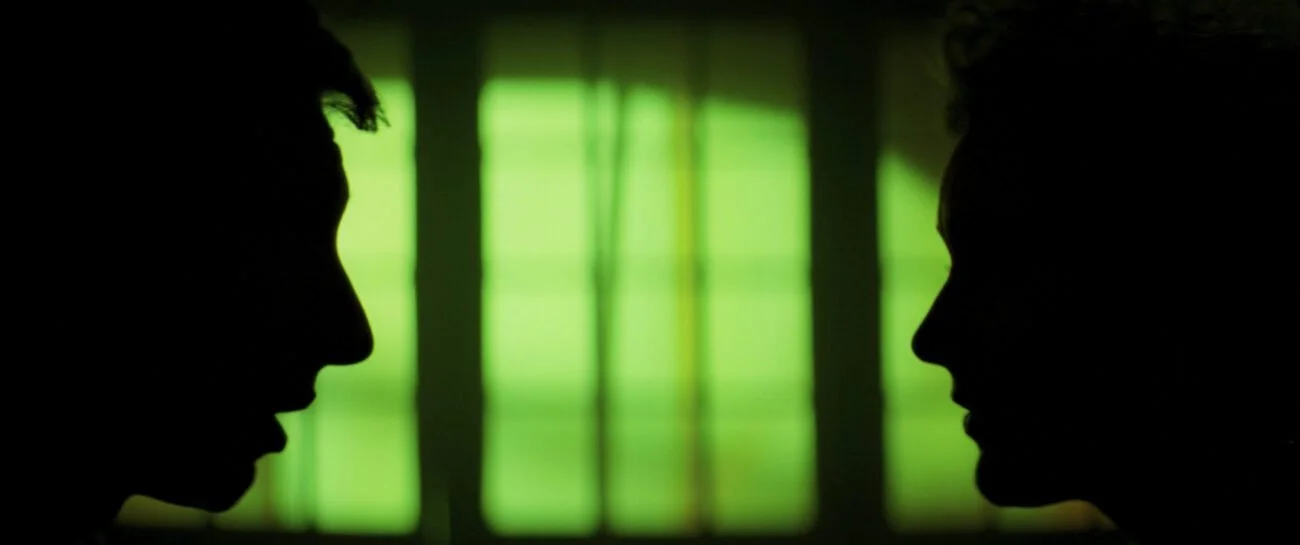“White Noise” - Film Review
This review was originally posted on Film Obsessive.
“Sounds like a boring life. I hope it lasts forever,” utters Babette Gladney (Greta Gerwig) as she meanders down the suburban sidewalk with her husband, Jack (Adam Driver). Life is simple and boring. She teaches a posture class and he’s a professor and an expert on Hitler who teaches at the local college. Together, they have four children (May Nivola, Sam Nivola, Raffey Cassidy, and Henry Moore), three from previous marriages and one together. Their picturesque existence is thrown into chaos when an eighteen-wheeler hurtles into a train, creating a Toxic Airborne Event.
Writer/Director Noah Baumbach has made a career out of introspective personal dramas. He used his own childhood experience of his parents’ divorce to create his breakthrough film, The Squid and the Whale. Baumbach’s other collaboration with Driver, Marriage Story, was also semi-autobiographical, inspired by his own divorce and the experiences of many of his friends. In a sense, even though White Noise is an adaptation of a novel of the same name written by Don DeLillo in 1985, the film feels personal to Baumbach. It feels personally relevant to just about everyone. Haven’t we all been living through a toxic airborne event for the past (almost) three years? The snippets of information that trickle down to the Gladney family as the first reports of the event are eerily reminiscent of the early days of Covid-19.
Cr. Wilson Webb/Netflix © 2022
Despite the fact that this is the largest-scale film Baumbach has made, White Noise is still just about people at its core. It’s about the ways families come or don’t come together, marital troubles, and the fundamental flaw of the human condition: mortality. Worse than the fear of the inexplicable Toxic Airborne Event is the everyday, regular existential dread of death. It consumes Jack and Babette in different, desperate ways. Pushes them to take experimental drugs, focus their careers on the intoxicating power of suggestion, and ruin what good things they already have.
One of the symptoms of the Toxic Airborne Event is a sense of a deja vu. White Noise is exactly that: a candy-coated reminiscence of an America that never really was. The boom of the 1980s economy gave way to this Technicolor American Dream. The shelves of the A&P are fully stocked, the produce is gleaming, the supermarket is a symbol of security, the certainty of the status quo. The film is bursting with product placement. The kitchen table is covered in Lucky Charms, Frosted Flakes, and Pringles, all symbols of American consumerism. The American Dream is the ability to pay a premium for meaningless status.
Cr: Wilson Webb/NETFLIX © 2022
The world Baumbach and his art director Chris Farmer have created is an ’80s fever dream. It’s hard to believe there was a time the world could have looked this syrupy sweet, but I’m sure the ’80s never looked like this. The cafeteria and classrooms at the College-On-The-Hill are an ’80s wonderland, remembering things for what they could be instead of what they were. This speaks to the larger concept of memory that White Noise hints at. We don’t actually remember things correctly. It’s our misremembering that becomes our version of history. Our memory is our perception, for better or for worse.
White Noise was never about the Toxic Airborne Event, not really. While it’s the catalyst of the film’s second act, its impact isn’t as life-altering as one would expect. Yet it is the reason that life falls apart for the Gladneys. It exposes their deepest insecurities and fears, things that were already a part of them, but they were able to hide under their breezy, carefree suburban lifestyle. The Toxic Airborne Event is simply the unwelcome, forcible reckoning of deep-seated fears for Jack, Babette, and the audience. How do you prepare for the inevitable? What do you do when your own mortality is looming over you like a billowing cloud of toxic waste?
Cr. Netflix © 2022
Gerwig and Driver are a dynamic duo and manage to ground the film to its deeply human emotions, despite the script’s eccentricities. Their banter is crackling, lived-in. The quick back-and-forth, call and response dialogue between the Gladney parents and children is perfectly orchestrated. Not rehearsed or fake, but effortless in the way it feels in your own family. The unanswerable questions that get lobbed out by a child, only to be passed from parent to parent before a sibling fills in the blanks. Even in the midst of a looming, potentially life-changing event, it is this banter that remains constant.
White Noise is a mumblecore indie film with a Spielbergian disaster at its core. It’s grander than anything Baumbach has done before, and may likely do again, which makes it all the more special. The film is a biting satire of our times, plucked out of the 1980s.
Follow me on BlueSky, Instagram, Letterboxd, & YouTube. Check out Movies with My Dad, a new podcast recorded on the car ride home from the movies.



